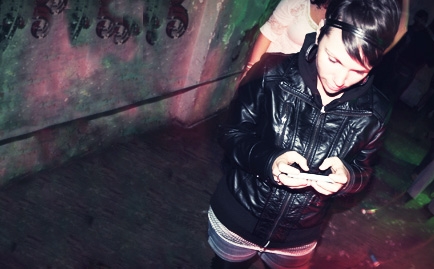
Do you ever love a new technology or product that enters the scene, but at the same time feel a nagging sense of worry or dread about that new thing and how quickly you’ve embraced it? It’s like you’re all caught up in the fun excitement and “cool factor” of it all—and then suddenly you catch a glimpse at how our adoption of that thing might irrevocably be changing the world as we know it.
That sense of dread recently hit my husband, Jason, and I as we were talking about our love for Zite, an iPad app that creates a custom magazine for you. To help Zite get started on your tailor-made publication, you can either check all of the topics that are of interest to you—from politics and architecture to DIY ideas, food and parenting—or you can simply let Zite take a look at your Twitter feed and base your magazine content on key words and links found there. Once your magazine is created, you have the option to give each article you read a thumbs up or down in terms of topic and the source. For instance, I said I liked the article “Can Playgrounds Be Too Safe?” and I wanted to see more articles like that, and more articles from that particular source, The New York Times. Zite did whatever it does to take note of my preferences, shifting and narrowing in on who I am and what I like.
Cool, huh? And definitely time-saving. Zite combines all of my favorite blogs and news sources into one neat and tidy format. Why waste my limited time sorting through stuff I’m not interested in, or viewpoints I clearly don’t (and won’t) agree with?… Right?
Losing the Joy of Discovery
Our world is becoming rapidly, drastically polarized, and it’s scarier than just about anything else. This polarization is impacting every part of our lives—and it’s very possible that our ability to custom-curate and tailor our very worlds is contributing to this problem.
We’re in danger of losing “the joy of discovery.” True discovery usually involves something new and unexpected—something that takes you by surprise. A discovery makes you step back, pause and consider how to process and maybe even incorporate that new thing, whether it be a new flavor of food, an unfamiliar culture or a different way of organizing and running a business.
But when we are able to curate the world around us, we have the power to block or redact the sources and opportunities of true discovery. We decide what we want to see, and then take a thick marker to everything else, blacking it out to preserve our take on the world. We control the conversation.
If everything you read reinforces your preconceived notions of the world, then everyone is just going to continue to narrow their perceptions. … Enter the pit of dread in my stomach.
People who aren’t worried about this sort of thing will say, “Oh, we’ve been doing that forever, just in different ways.” To some extent, it’s true. We tend to choose neighborhoods and churches filled with people mostly like us, and we almost always choose our friends according to common interests and viewpoints. We go to restaurants that serve the type of food we like, get our headlines from the networks we typically agree with and listen to radio stations (if anyone does that any more) that play the style of music we like.
Yes, all of that “curation” was going on long before Web 2.0 became a “thing.” But now, Pandora custom-creates our playlists, Amazon tells us what we should buy and Google custom-places the ads we see. On Twitter and Facebook, we choose who to follow or friend according to shared interests, and we can easily block or unfollow those who stray annoyingly far from our take on the world. Just this week, the launch of Facebook Timeline will again give us greater ability to narrow down what we want to see and show our "friends."
So we’re going to edit our worlds—and to a certain extent we should. A critical ear and eye are encouraged. But where and how do we draw the line? It seems like we should be especially aware of this in terms of our news and information sources but also in respect to the people we know and converse with.
I should mention that my husband, being who he is, actually wrote a brief email to Zite’s CEO, Mark Johnson. He wrote back, saying that “serendipity” is one of the things they “care about deeply” at Zite—that they’re working to make sure the unexpected remains a part of the equation.
Ever-evolving, “cool” technology is something we can’t ignore. But as we embrace the advancements, let’s consider what steps we can take in our day-to-day lives to allow for the serendipitous, enjoy the unexpected and preserve the journey of discovery.
Kristin Tennant is a freelance writer and blogger at Halfway to Normal and The Huffington Post. She and her husband and their blended family live what she calls a “halfway normal” life full of stories, surprises and redemption in Urbana, Illinois.




















